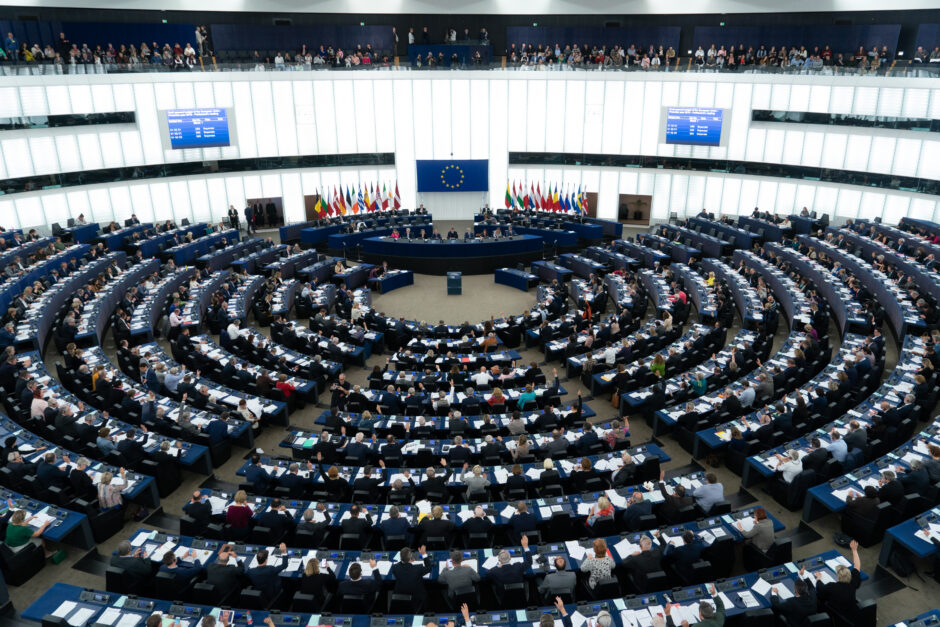In light of the global climate crisis, a behavioral change towards a more sustainable lifestyle is inevitable for everyone.c Through engaging in responsible business conduct, companies around the world have the power to affect change not only in environmental terms, but also in areas such as human rights. As many companies are unlikely to voluntarily alter their behaviors, the European Union aims to push for a more responsible business conduct through legislation. Recently, a new legislative tool to encourage sustainable practices among companies, the Corporate Sustainability Due Diligence Directive (CSDDD), was passed. This directive supplements the Corporate Sustainability Reporting Directive (CSRD), which came into effect last year. These directives collectively establish comprehensive guidelines and frameworks designed to encourage companies to engage in more sustainable practices. However, there has been a lot of debate around the CSDDD and its implications. Due to this controversy, the final vote on the CSDDD was postponed twice, as it was not expected to reach the necessary majority. Eventually, a highly weakened version of the directive was adopted last month. What are the main points of contention surrounding the due diligence directive? And what implications do the last-minute changes have for the effectiveness of the directive?
First, it is important to understand the specifics of both the reporting directive and the due diligence directive. Adopted in 2023, the CSRD puts the obligation on companies to report on their social and environmental impacts in line with the EU’s sustainability standards. The CSRD aims to foster behavioral change through transparency; it requires companies to provide insight into all of their operations, including those with harmful environmental impacts. The hope is that this transparency will motivate companies to take actions to protect their reputations. However, actually decreasing damaging impacts is not an obligation. In theory, the CSRD allows companies to merely report on their harmful operations without any changes. The CSDDD is designed to fill this gap between reporting and actual action. Through a mandatory due diligence mechanism and liability for activities across their entire value chain, the CSDDD compels companies to actively reduce their environmental footprint.

The CSDDD has been subject to a lot of controversy and debate, before it was finally formally accepted. Initially, a provisional deal was reached between the European Parliament and the Council of the European Union in December of the previous year, leaving formal approval as the final step. However, the vote from the European Council, which consists of representatives from each European member state, was postponed twice due to insufficient support, as several countries declared their intention to abstain. Finally, after two postponements and many changes to the directive’s text, a majority was reached in March. The debate around the CSDDD mainly stemmed from the fact that companies would now be responsible for the potential harmful impacts of their entire value chain, not just their own operations. Critics argued that this would be too burdensome and resource-intense for companies. Additionally, the debate centered around whether to include financial institutions in the scope of the CSDDD was also significant. After much discussion, it was decided to temporarily exclude financial institutions from the directive, meaning they would not be liable for indirect environmental impacts within their financed activities. All these issues, compounded by internal political struggles, led some countries, such as Germany, to abstain from the final vote in February. The proposal was thus sent back for further revisions, resulting in a version with a narrower scope and less strict regulations that was ultimately adopted in March.
In the accepted proposal, the CSDDD applies only to companies with over 1,000 employees and a certain net turnover. This deviates from the original proposal, which aimed to include all companies with more than 500 employees, thus aligning with the scope of the CSRD. This disparity means that although the CSDDD and the CSRD are supposed to work together in increasing sustainable behavior among companies, they now cover different segments of the corporate sector. This lack of harmonization within the complex jungle of sustainability rules and regulations may reduce the ambition levels of companies. Another part of this fragmentation is that now, there is a group of companies that only have the obligation to report on their business operations, without having to decrease their negative impacts on the environment. This could have a negative effect on the market position of companies just above the CSDDD threshold, having to invest much more resources in order to comply with the directive. Furthermore, the financial institutions are subject to special treatment and facing a delayed compliance timeline compared to other companies. All in all, the chaotic legislative process and the legal fragmentation resulting from the debate could significantly undermine the effectiveness of the directive.

Photo by European Parliament on Flickr.
However, the watered-down version of the CSDDD is much better than having no European legislation on corporate sustainability due diligence at all. In the run-up to the CSDDD’s formal acceptance, some European countries had already implemented domestic laws imposing similar obligations on companies. This naturally results in even more fragmentation across the EU. Some companies have even threatened to leave a Member State in case domestic due diligence laws were to be implemented. By harmonizing due diligence obligations across the EU, the CSDDD will hopefully induce a behavioral change in companies. Of course, companies could move their headquarters outside of the EU. However, I choose to stay optimistic that companies will comply and help to create a more sustainable world, rather than run away from their responsibilities



